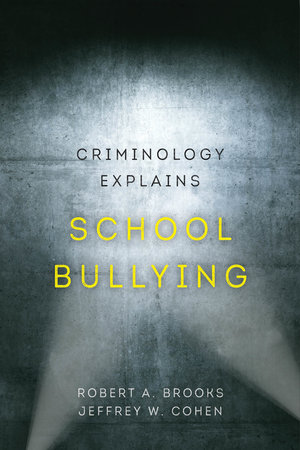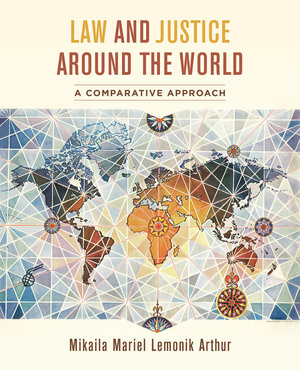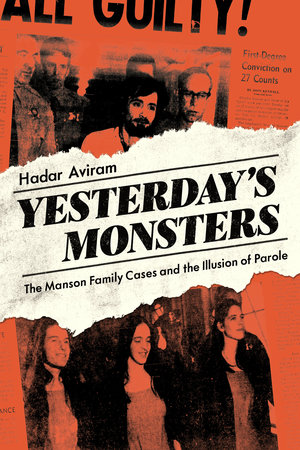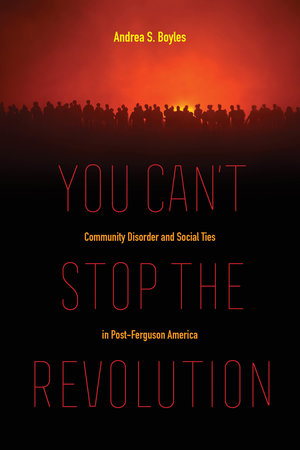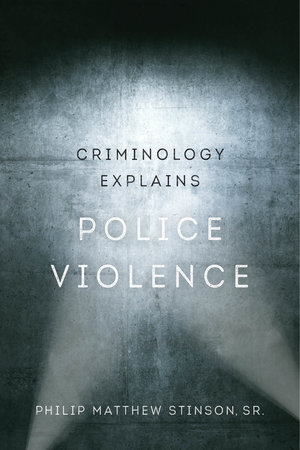
Criminology Explains Police Violence
by Philip Matthew Stinson Sr
Criminology Explains Police Violence offers a concise and targeted overview of criminological theory applied to the phenomenon of police violence. In this engaging and accessible book, Philip M. Stinson, Sr. highlights the similarities and differences among criminological theories, and provides linkages across explanatory levels and across time and geography to explain police violence.
This book is appropriate as a resource in criminology, policing, and criminal justice special topic courses, as well as a variety of violence and police courses such as policing, policing administration, police-community relations, police misconduct, and violence in society. Stinson uses examples from his own research to explore police violence, acknowledging the difficulty in studying the topic because violence is often seen as a normal part of policing.
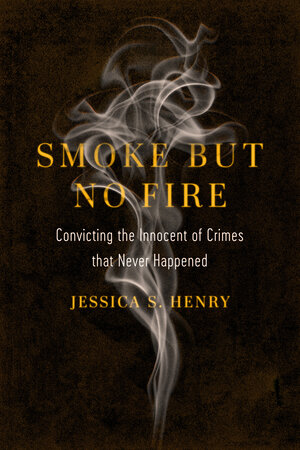
Smoke but No Fire
Convicting the Innocent of Crimes that Never Happened
by Jessica S. Henry
The first book to explore this common but previously undocumented type of wrongful conviction, Smoke but No Fire tells the heartbreaking stories of innocent people convicted of crimes that simply never happened. A suicide is mislabeled a homicide. An accidental fire is mislabeled an arson. Corrupt police plant drugs on an innocent suspect. A false allegation of assault is invented to resolve a custody dispute. With this book, former New York City public defender Jessica S. Henry sheds essential light on a deeply flawed criminal justice system that allows—even encourages—these convictions to regularly occur. Smoke but No Fire promises to be eye-opening reading for legal professionals, students, activists, and the general public alike as it grapples with the chilling reality that far too many innocent people spend real years behind bars for fictional crimes.
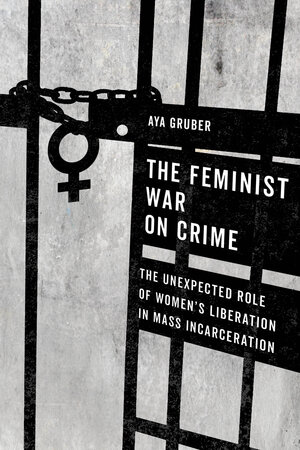
The Feminist War on Crime
The Unexpected Role of Women’s Liberation in Mass Incarceration
by Aya Gruber
Deploying vivid cases and unflinching analysis, The Feminist War on Crime documents the failure of the state to combat sexual and domestic violence through law and punishment. Zero-tolerance anti-violence law and policy tend to make women less safe and more fragile. Mandatory arrests, no-drop prosecutions, forced separation, and incarceration embroil poor women of color in a criminal justice system that is historically hostile to them. This carceral approach exacerbates social inequalities by diverting more power and resources toward a fundamentally flawed criminal justice system, further harming victims, perpetrators, and communities alike.
In order to reverse this troubling course, Gruber contends that we must abandon the conventional feminist wisdom, fight violence against women without reinforcing the American prison state, and use criminalization as a technique of last—not first—resort.
Decriminalizing Domestic Violence
A Balanced Policy Approach to Intimate Partner Violence
by Leigh Goodmark
Decriminalizing Domestic Violence asks the crucial, yet often overlooked, question of why and how the criminal legal system became the primary response to intimate partner violence in the United States. It introduces readers, both new and well versed in the subject, to the ways in which the criminal legal system harms rather than helps those who are subjected to abuse and violence in their homes and communities, and shares how it drives, rather than deters, intimate partner violence. The book examines how social, legal, and financial resources are diverted into a criminal legal apparatus that is often unable to deliver justice or safety to victims or to prevent intimate partner violence in the first place. Envisioned for both courses and research topics in domestic violence, family violence, gender and law, and sociology of law, the book challenges readers to understand intimate partner violence not solely, or even primarily, as a criminal law concern but as an economic, public health, community, and human rights problem. It also argues that only by viewing intimate partner violence through these lenses can we develop a balanced policy agenda for addressing it. At a moment when we are examining our national addiction to punishment, Decriminalizing Domestic Violence offers a thoughtful, pragmatic roadmap to real reform.
Criminology Explains School Bullying
by Robert A. Brooks and Jeffrey W. Cohen
In this book, Robert A. Brooks and Jeffrey W. Cohen provide a concise, targeted overview of the major criminological theories to explain the phenomenon of school bullying, bringing to life what is often dense and confusing material with concrete case examples. Criminology Explains School Bullying is a valuable resource in criminology or juvenile delinquency classes, as well as special-topics classes on school violence, bullying, or the school-to-prison pipeline. Charts, critical thinking questions, and implications for practice and policy illuminate real-world applications, making this is a go-to book for teachers, students, and researchers interested in an empirically driven synthesis of criminological theory as it applies to school bullying.
Law and Justice around the World
A Comparative Approach
by Mikaila Mariel Lemonik Arthur
Law and Justice around the World is designed to introduce students to comparative law and justice, including cross-national variations in legal and justice systems as well as global and international justice. The book draws students into critical discussions of justice around the world today by:
- taking a broad perspective on law and justice rather than limiting its focus to criminal justice systems
- examining topics of global concern, including governance, elections, environmental regulations, migration and refugee status, family law, and others
- focusing on a diverse set of global examples, from Europe, North America, East Asia, and especially the global south, and comparing the United States law and justice system to these other nations
- continuing to cover core topics such as crime, law enforcement, criminal courts, and punishment
- including chapter goals to define learning outcomes
- sharing case studies to help students apply concepts to real life issues
Yesterday’s Monsters
The Manson Family Cases and the Illusion of Parole
by Hadar Aviram
In 1969, the world was shocked by a series of murders committed by Charles Manson and his “family” of followers. Although the defendants were sentenced to death in 1971, their sentences were commuted to life with parole in 1972; since 1978, they have been regularly attending parole hearings. Today all of the living defendants remain behind bars.
Relying on nearly fifty years of parole hearing transcripts, as well as interviews and archival materials, Hadar Aviram invites readers into the opaque world of the California parole process—a realm of almost unfettered administrative discretion, prison programming inadequacies, high-pitched emotions, and political pressures. Yesterday’s Monsters offers a fresh longitudinal perspective on extreme punishment.
You Can’t Stop the Revolution
Community Disorder and Social Ties in Post-Ferguson America
by Andrea S. Boyles
You Can’t Stop the Revolution is a vivid participant ethnography conducted from inside of Ferguson protests as the Black Lives Matter movement catapulted onto the global stage. Sociologist Andrea S. Boyles offers an everyday montage of protests, social ties, and empowerment that coalesced to safeguard black lives while igniting unprecedented twenty-first-century resistance. Focusing on neighborhood crime prevention and contentious black citizen–police interactions in the context of preserving black lives, this book examines how black citizens work to combat disorder, crime, and police conflict. Boyles offers an insider’s analysis of cities like Ferguson, where a climate of indifference leaves black neighborhoods vulnerable to conflict, where black lives are seemingly expendable, and where black citizens are held responsible for their own oppression. You Can’t Stop the Revolution serves as a reminder that community empowerment is still possible in neighborhoods experiencing police brutality and interpersonal violence.

